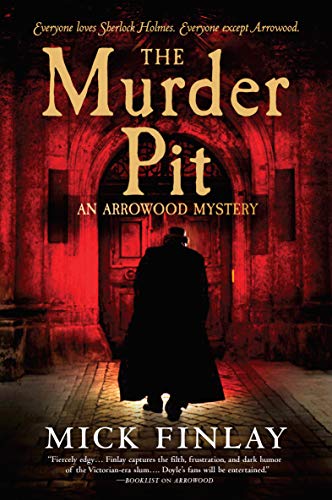
London in 1896, not the sophisticated, charming London of Sherlock Holmes, but the grungy, hardscrabble London of Holmes’s jealous rival, low-rent private investigator William Arrowood. Fat, heavy-drinking, gout-suffering Arrowood, who reads people’s faces and applies practical psychology to problems of crime. And who only seems to get noticed by the newspapers when he’s accused of some impropriety.
In The Murder Pit, second book in the series, Arrowood is hired by the Barclay family to make contact with their daughter Birdie. Birdie is mentally challenged, but is married to a son of a farming family in a village near London. For some reason her in-laws are preventing her from communicating with them, and they are worried about her.
It seems to be a truism in Arrowood’s life that all his clients lie to him. He knows the Barclays are concealing something. But it’s a job, and perhaps he can do some good. He and his assistant Barnett find the village economically depressed, and the farm people secretive, not hesitating to use violence to protect their privacy. Further investigation will reveal ties to a local insane asylum, and an important witness will disappear suspiciously. If Arrowood can unravel the mystery before the newspapers hound him out of business, he will be in a position to uncover a scandal at a very high level of society.
There are many good things to say about The Murder Pit. It will teach you much about the treatment of the mentally challenged in the 19th century, and of social conditions among the poor in the same period. My problem with this book (and the one before it) is that there’s not much fun here. I didn’t like the hero much, and there’s a sense of frustration and injustice throughout. Very likely it’s all true, too. But I don’t think I want to spend money on more of these stories.
Cautions for language and disturbing scenes.
